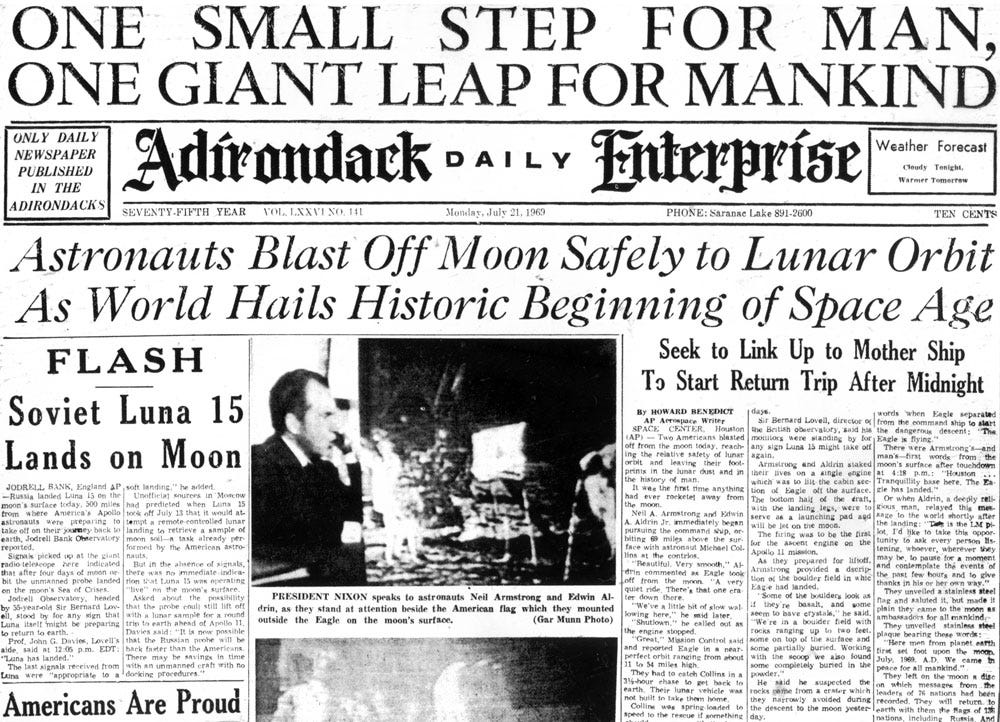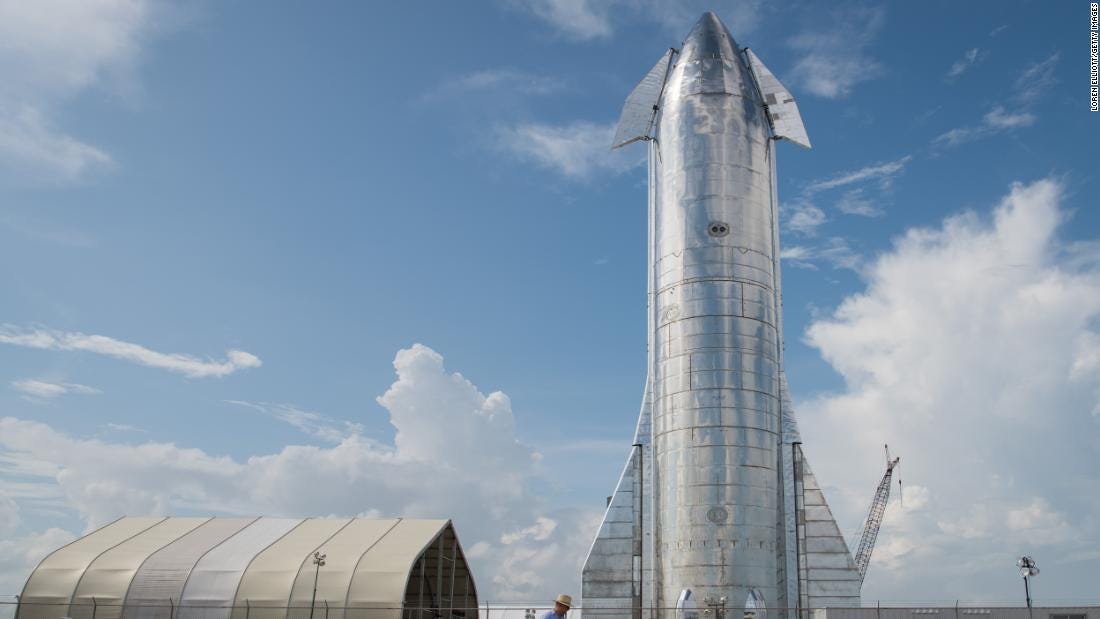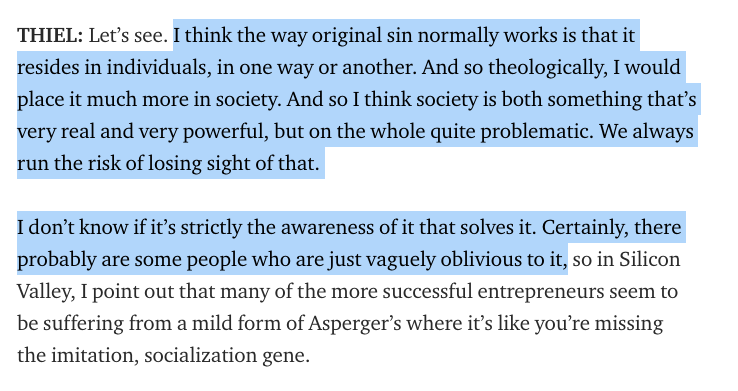What's become of America's space dream?
a short history of cosmic manifest destiny

I’ve been obsessed with Raised by Wolves lately, which means I've been thinking about space. More specifically, thinking about the National Geographic Kids Future issue that arrived in the mail one day when I was eight years old, and the promises it made about space travel. The issue predicted that by the time I was 33 years old we'd be commuting in self-driving cars, traveling to the moon for field trips, and keeping tiny genetically modified elephants as pets. Now that I'm 23 it seems like we're pretty close on the car front, not so close on the elephant front. But will we be taking field trips to the moon anytime soon?
A tentative answer: maybe.
The moment in 1969 when Neil Armstrong stepped on the moon was the triumph of a century: a triumph of techno-futurism, of large-scale planning, of every human being who has dreamed wistfully about the moon since way before Li Bai wrote poems about it in the Tang Dynasty. In 1610 Kepler wrote in a letter to Galileo:
Let us create vessels and sails adjusted to the heavenly ether, and there will be plenty of people unafraid of the empty wastes. In the meantime, we shall prepare, for the brave sky-travellers, maps of the celestial bodies.
Needless to say, we’ve been working towards sky-travelling for a long time. Today, maybe feels miraculous: the National Geographic prediction surprises me because even 15 years ago the possibility of commercial space travel before 2050 would’ve seemed dismal. Modern space travel started as a government effort, but after lying dormant for multiple decades the American dream of conquering space has been resurrected by private companies.
Many people in Silicon Valley believe in a theory of history charted by a surprising small number of insanely determined people. It's up for debate whether this is universally true, but it's certainly true for the history of space tech: modern space travel was developed, as Neal Stephenson explained in an article for Slate, primarily because two powerful nations were under the control of dictators who were fixated on superweapons. Nazi Germany built operational ballistic missiles called V2s, which became the basis of early American and Soviet rocket designs. Soon after the USSR began to create atomic bombs, which then forced the United States to join an arms race out of terror of a future nuclear war that included the creation of the hydrogen bomb and ICBMS capable of delivering nuclear bombs.
Thus the space race began: the USSR and the US made announcements four days apart stating that they would launch artificial Earth satellites by 1957 or 1958. Basically what I'm trying to explain to you is that the development of modern space travel was essentially due to a pissing contest with apocalyptic stakes. Figures, doesn't it?
The next decade was heady. In 1958, Eisenhower signed the National Aeronautics and Space Act, establishing NASA. Space plan concepts were replaced by ballistic space capsules, and Project Mercury was born; in 1961 Alan Shepard became the first American in space aboard Freedom 7. At this point the US was lagging behind Russia, which had sent first man in space, Yuri Gagarin, into a single Earth orbit aboard Vostok 1 one month before Shepard's flight.
The perception of the Soviet lead led to JFK’s address to Congress in 1961 proclaiming the goal of "landing a man on the Moon and returning him safely to the Earth” and the birth of Project Apollo. In 1968 Apollo 8 brought astronauts in a flight around the Moon. In 1969 Neil Armstrong became the first person to walk on the moon. One giant step for mankind... The moon landing marked the end of the space race, and the end of the ideological fight that propelled it. We spent money like money was no object, but once we stepped on the moon money rapidly became an object again

In 1969 headlines proclaimed that we had entered the Space Age, but reality fell disappointingly short of narrative expectations. The space race was exorbitantly expensive: the cost of the nuclear weapons and missile programs was approximately $4 trillion in both the United States and the USSR. NASA’s share of the US federal budget peaked at over 4% in 1966. In recent years hovers at around half a percent. The US government lost interest in space travel after the 1960s: ever since, we have been locked in stasis.
In a weird parallel to the 1940s, when the space race was catalyzed by one insane super-villain, the American dream of space travel since the 1970s has pretty much been pushed forward by two or three people, most famously by 49-year-old South African born Elon Musk.
After Musk sold Zip2 for $300 million when he was 28, and PayPal for $1.5 billion when he was 31, he directed his ambition towards two new startups: Tesla, which aimed to replace cars with electric vehicles, and SpaceX, created with the goal of colonizing Mars. Musk originally wanted to send a small experimental greenhouse to Mars; he thought the image of healthy plants flourishing would excite public imagination and lead once again to a larger NASA budget. When he realized that transport for the greenhouse would cost over 60 million, he decided that he would simply start his own rocket company. Six years later, Musk had spent $100 million on the company and its new rocket, but SpaceX was close to shutting down; its first three launches had all flamed out before reaching orbit. Luckily, the Falcon 1's fourth launch was successful, and in 2008 it became the first privately-funded liquid-propellant rocket to reach orbit.

Since that launch SpaceX has knocked off a dizzying array of achievements, becoming the first private company to successfully launch, orbit, and recover a spacecraft in 2010, to send a spacecraft to the International Space Station in 2012, to launch an object into orbit around the Sun in 2018, and to send astronauts to orbit and to the International Space Station in 2020. In a 2014 Aeon profile published when SpaceX was 12 years old, Musk said that by 2040 he hoped to be ready to seed a colony on Mars. It's been six years since then, and SpaceX has shifted much of its focus to the Starship system, a reusable rocket system that can launch cargo or up to 100 people at once. SpaceX’s current Falcon rockets are partially reusable, but Musk believes Starship will transform space travel to something with commercial potential (a.k.a. field trips to the moon?).
In 2019, Musk unveiled a full-size Starship prototype at the company's Texas development facility. He claimed that Starship's first orbital flight would happen in 2021, though he added that the first attempts might be unsuccessful (in May, he hilariously tweeted "orbit is hard.") His stated timeline for future Mars missions is aggressive: cargo missions by 2022 and crewed missions by 2024.

Whether that timeline is viable remains to be seen. Even with SpaceX’s advancements, the cost of space travel currently remains prohibitive. Musk estimates that Starship development will cost up to $10 billion. As of 2020 Musk's net worth is equal to around $100 billion, and SpaceX has raised ~$6 billion to date. There are no natural resources on Mars we know of that would be worth selling, and the planet is not currently particularly hospitable to human life. Terraforming Mars is an idea that has been kicked around, though scientists currently don’t have much clue as to how practical implementation might become possible.
Of course, Musk isn't the only rampantly ambitious founder interested in space. Jeff Bezos founded Blue Origin in 2000, two years before SpaceX, and has invested a significant portion of his Amazon profits into the company; it focuses on building rocket-powered VTVL (vertical takeoff and vertical landing) suborbital rocket systems called New Shepard. He also dreams of humanity living and working in space in a few hundred years: “We send things up into space, but they are all made on Earth. Eventually it will be much cheaper and simpler to make really complicated things, like microprocessors and everything, in space and then send those highly complex manufactured objects back down to earth, so that we don’t have the big factories and pollution generating industries that make those things now on Earth."
In 2018 Christian Davenport wrote a book called Space Barons: Elon Musk, Jeff Bezos, and the Quest to Colonize the Cosmos, about “the men who are vying for control of the emerging NewSpace industry.” Space is sexy business for entrepreneurs these days: in addition to Musk and Bezos, Davenport writes about Richard Branson and Paul Allen. Ceridwen Dovey, in a review of the book for the New Yorker, points out the boy's club nature of current space endeavors: “Today, a mogul like Musk can help create a rocket-weapon of extraordinary destructive power while also preaching that we should become a “multi-planetary species.” His insistence that we need to establish a backup civilization elsewhere could be the first small step toward renouncing the Earth as a wasteland, rather than tending to it as the only paradise we might ever know." She notes that all four men mentioned in the book have similar biographies, that they all read similar science fiction books growing up.
Going back to Raised by Wolves for a moment: it's been hypothesized that science fiction narratives shape our thinking about the future the same way that movies shape our expectations around intimacy. I worry that in the past 30 or 40 years we've failed to come up with radically new stories about the future. Raised by Wolves feels distinctly retro Ridley Scott with its bodysuit-clad androids, but what feels truly modern these days? After all, much of the conversation around technological progress in recent years has been about stagnation: most of our current technological innovation is focused on the marginal improvement of everyday life, food delivery apps instead of cities on Mars.
In Capitalist Realism, Mark Fisher pointed out that "the cultural mechanism responsible for the production of new ideas about the future has seemingly broken down": our dreams of the future are no longer fresh. The ideas of the Russian cosmists of the early 1900s, who argued that “becoming human in the true sense was possible only by humanizing the universe, by completely infusing it with human artistic and creative energy" seem shockingly contemporary: Nikolai Fyodorov, born in 1829, wrote about immortality, revival of the dead, space and ocean colonization; Musk's dreams deviate little from his. Peter Thiel has been publicly saying for years that technological innovation stalled in 1970; he points out that our government today seems incapable of the type of large-scale future-oriented planning that would allow us to recreate the Manhattan Project or Apollo.

Both Thiel and Fisher believe that we've lost an ability to imagine the future, and I think they're correct. But I'm still moved by advances in space travel because even though the dream has not changed that much since Solaris—yes it's retrograde yes it's exclusionary—it seems imperative to consummate the dream. Fisher wrote passionately about the ecstasy of discovery, about how writers like James Joyce and J.G. Ballard shaped him in his teens: “The periods of my adult life that have been most miserable have been those in which I lost fidelity to what I discovered then.” I think he would understand better than anyone how, say, reading Ender's Game when you're 12 can shape the rest of your life, seed in you always the desire to make the imagined narrative real.
One of the terms Fisher brings up often in his writing is hauntology, borrowed from Jacques Derrida, which he uses to “describe art that seems to yearn for a future that has never arrived." For a couple decades it seemed like all our science fiction had become a sort of hauntology: we were longing for a lost future, for a cosmic manifest destiny that would never arrive. Fisher wrote that the current pace of market changes requires constant adaptation from the people affected: we are so unsure of what tomorrow will bring that we‘re forced to constantly evaluation of our near-term future, and as a result the utopian dreams we cling onto are those inherited from the past. There is a heavy feeling hanging in the air that America today is decadent and bored (just read Ross Douthat’s book), unwilling to take the kind of risks we took in the 20th century. But still people like Musk emerge to tow us towards Mars. The ideology and storytelling isn't new, but his execution is.
From Ender's Game: "We need a Napoleon. An Alexander. Except that Napoleon lost in the end, and Alexander flamed out and died young. We need a Julius Caesar, except that he made himself a dictator, and died for it.” In Interior States, Megan O'Gieblyn writes that “though few transhumanists would likely admit it, their theories about the future are a secular outgrowth the Christian eschatology. In fact, she goes onto explain that the word “transhuman” first appeared not in a work of science but in Henry Frances Cray's 1814 translation of Dante's Paradiso: “Words may not tell of that transhuman change." Our desire to conquer to universe is fundamentally religious: the longing to endure, to propagate, to spread life over the galaxy is as old as we are. Before we knew what the stars were we wanted to fly towards them. It's this fundamental yearning that allows us to continue to dream even as progress stagnates. We build rockets. We strain towards miracles. We have prophets who warn us that the future on earth will be fiery and apocalyptic, that we must accelerate, accelerate, escape.


Gosh I love your writing Ava.
If you haven't read it yet, you would love Velikovsky's "World's In Collision"